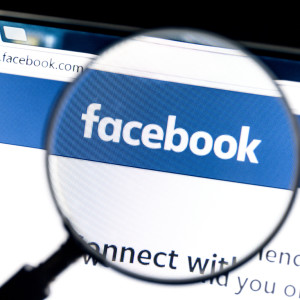In 2013, Facebook rolled out its website internet.org to provide Internet access to potential users who could not afford it. It did this by partnering with local telecommunications providers to underwrite the data service it depended on while limiting the access that users had. In the jargon parlance of Internet policy wonks, it was offering limited access into a “walled garden.” Facebook rolled out this service in countries around the world where Internet penetration was relatively low and poverty was high such as India. Critics lunged and launched a series of arguments against it. Facebook has subsequently modified its program including a name change to freebasics.com but the critiques of the program reveal far more about its critics than about the program itself. To be clear: Facebook is a for-profit commercial entity. It is seeking to grow its customer base and make a profit. Whatever good intentions it may have, it is at the end of the day seeking to make money, its own rhetoric notwithstanding. Let’s look at some of the critiques:
- Confusion
There is some evidence that some users mistake Facebook for the Internet. Naming their website internet.org exacerbates this. Facebook changed the name to freebasics.com to address this concern. This is likely a short term concern at best not unlike the early days of AOL where users may have thought that the AOL interface was the Internet. Repeated exposure, education, and friends clears up this confusion over time.
- The “Walled Garden”
Facebook limits the content accessible through it’s free service and thereby privileges some content providers. Critics of Facebook assert that this deprives users of the full, open Internet and runs counter to basic ideas of Internet access. One of the problems with this argument is that the free Internet in such countries is censored which ironically also incurs the ire of critics. In effect, Facebook’s service is a walled garden within a walled garden. Full Internet advocates run the risk of extolling the virtues of an open internet only to have users eventually discover that the full Internet they were promised is itself a walled garden.
- Network Neutrality
Some critics have pointed out that this violates principles of network neutrality in that Facebook is discriminating based on content. The definition of network neutrality varies significantly around the world and is embedded in the regulatory structure of a nation. In the United States, these types of service might well pass regulatory muster because Facebook is not an ISP and outside the FCC’s purview. Taking Facebook’s FCC testimony out of context to apply to India is awkward to say the least.
- Unfair Competitive Practices
Others have pointed out how Facebook’s involvement this is unfair to other telecommunications providers by creating an uneven playing field. This a comment not unlike taxi drivers complaining about Uber. A new business process does not constitute unfairness.
- Unfair Part 2
Facebook’s entry into this will dissuade other providers of Internet access, especially companies serving those who live in poverty. Facebook certainly has a first-mover advantage. I would be pleased to find a large non-profit doing the same work as Facebook in expanding Internet access but if they exist, they’re not revealing themselves. This line of questioning also raises the question of why users would choose Facebook’s walled garden over another one or open Internet.
- Exploitation
Facebook is exploiting the data of its users. Yes. This is true. It does it to all its users.
- Encryption or lack thereof
The most recent incarnation of Facebooks services does not encrypt data, does not allow for it, and does not permit encrypted links. This is a problem. However in the case of India, which this month began floating the idea of banning encryption, this might easily be a reaction to assuage government sensibilities in an already contentious environment.
- Fear
This takes many forms. Some fear this service will lead to Facebook’s global hegemony. Others fear that this service will break markets. Critics are seeking preemptive redress for problems they imagine might occur. This diverges from the best practices of policy making where policy is based upon fact, not fear.
At the end of the day it is important to think about the would-be users that Facebook is seeking to reach. These are people too poor to purchase Internet access of their own. Critics of zero-rating services like Facebook’s want a better solution than internet.org. I want one too. However, effectively blocking some of the poorest people in the world from even limited Internet access in the name of principle is wrong. Moreover, the critics are all writing their opinions on the Internet itself; they have access already. Internet access makes a big difference in the lives of those who have it, even for those with limited access. Moreover, if the history of the Internet is any guide, the boundaries of freebasics.com will soon be hacked; the internet treats censorship as damage and routs around. One needs only think back to the phone phreaks of the pre-Internet era to remember how innovative users can be. Opponents of freebasics.com do a disservice to the next billion Internet users by standing in the way.

